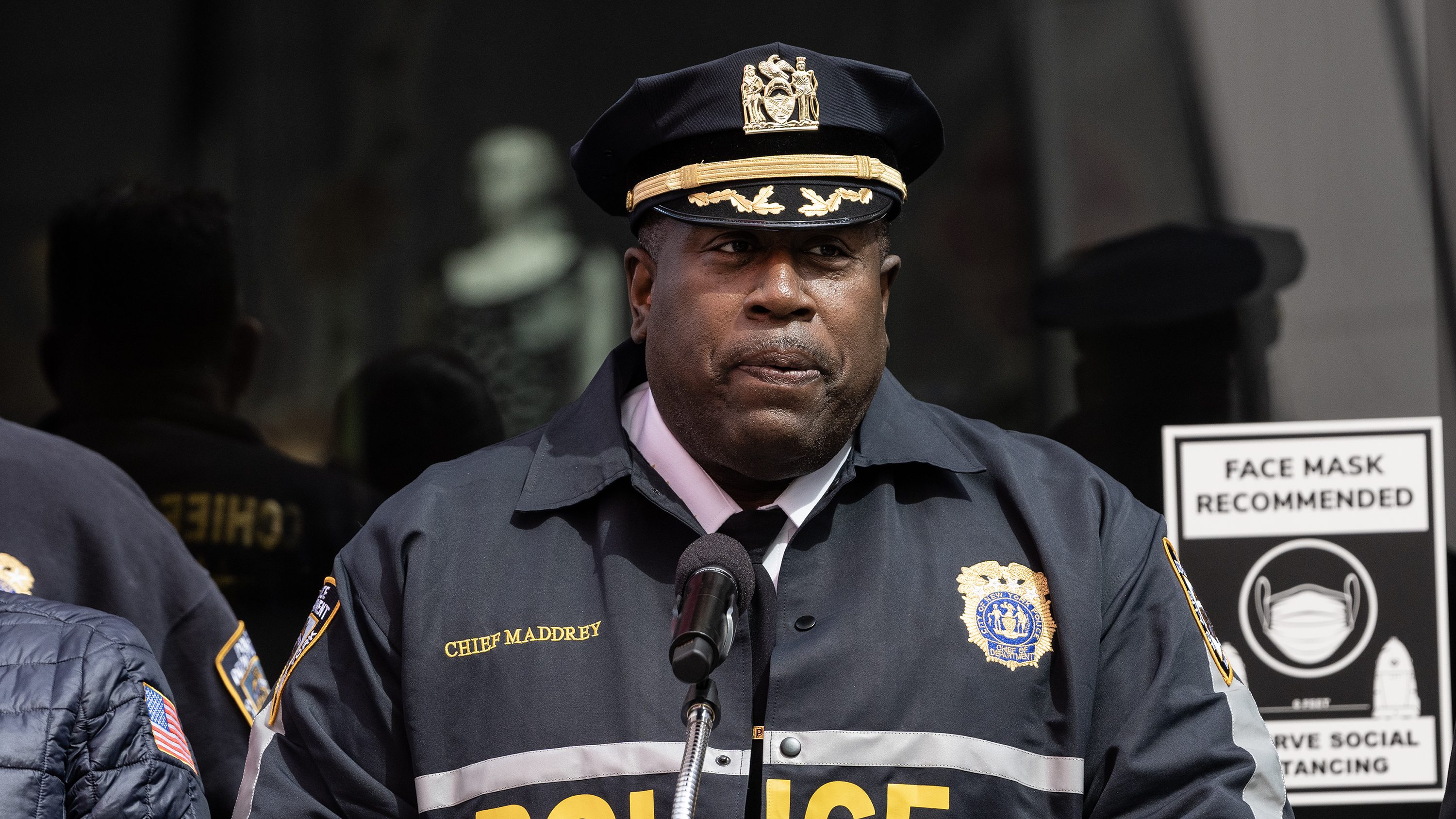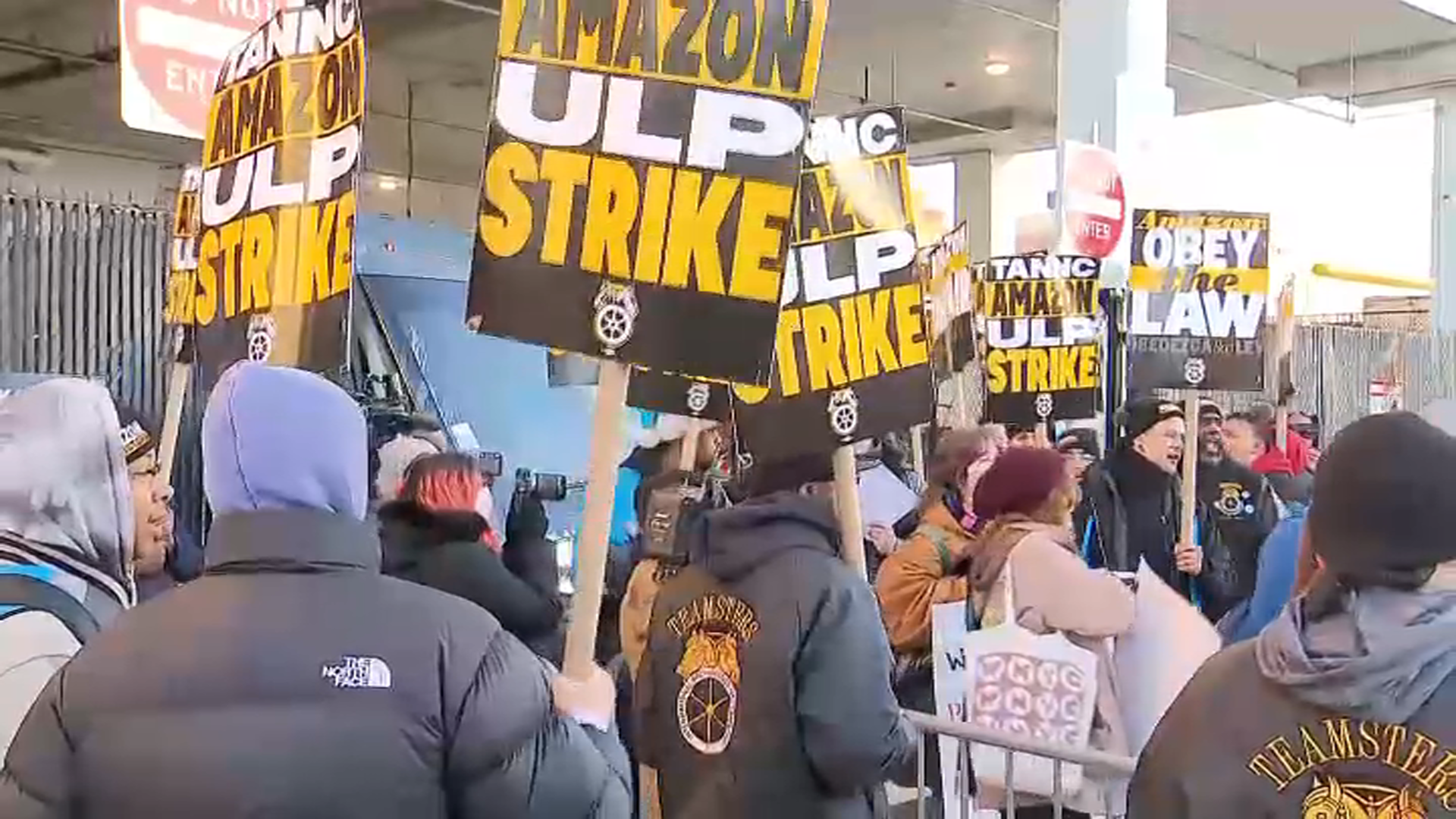What to Know
- The Supreme Court has unanimously tossed out the "Bridgegate" convictions of two former aides to then-New Jersey Gov. Chris Christie
- The justices suggested during arguments in January that the government had overreached in prosecuting Bridget Kelly and Bill Baroni
- Both were convicted of fraud and conspiracy for artificially creating gridlock in Fort Lee in 2013 after its mayor, a Democrat, declined to endorse the Republican governor
The Supreme Court has unanimously tossed out the "Bridgegate" convictions of two former aides to then-New Jersey Gov. Chris Christie.
Thursday's decision may not come as a surprise to many, given that when the case was argued, it was clear many justices thought that the prosecutors went too far, since the two officials charged did not benefit financially from closing the bridge lanes.
From the start of the case, the Supreme Court seemed broadly skeptical of the convictions of two people involved in New Jersey's “Bridgegate” scandal where officials created a massive traffic jam to punish a mayor who refused to endorse then-governor Christie's reelection.
The justices suggested during arguments in January that the government had overreached in prosecuting Bridget Kelly and Bill Baroni. Both were convicted of fraud and conspiracy for artificially creating gridlock in Fort Lee in 2013 after its mayor, Mark Sokolich, a Democrat, declined to endorse the Republican governor.
Prosecutors said Kelly and Baroni schemed to make an abrupt change to the flow of traffic over the George Washington Bridge from New Jersey into New York City in a way that backed up local traffic. The result was four days of traffic jams. A fictitious traffic study was used as cover for the change, but prosecutors said the real motive was political payback. At one point, Kelly, a Christie aide, wrote in an email: “Time for some traffic problems in Fort Lee."
Kelly was weeks from beginning a 13-month sentence last year when the Supreme Court agreed to hear the case. Baroni had begun serving his 18-month sentence but was released from prison after the high court agreed to weigh in.
News
In a statement following the decision, Kelly said that "the Court gave me back my name and began to reverse the six-and-a-half-year nightmare that has become my life."
In an interview with NBC New York after the decision came out, Kelly said she cried some "happy tears" while she was driving and was shocked by the news.
"Today is about vindication for me, for my children, my family, my friends ... I'd like to get my reputation back that was destroyed by others. I wanna feel whole again, this has been a nightmare," Kelly said. She didn't blame anyone in the Obama administration, but did say it seemed to be a case of prosecutorial overreach. "Exoneration is wonderful, but it doesn't give myself or my kids back that time."
Kelly called herself a "scapegoat" because she was "the easiest to point fingers at and get rid of and try to destroy."
Justice Elena Kagan delivered the opinion of the court, writing that although the case involved "abuse of power," not all corrupt acts are a federal crime.
"As Kelly’s own lawyer acknowledged, this case involves an “abuse of power.” Tr. of Oral Arg. 19. For no reason other than political payback, Baroni and Kelly used deception to reduce Fort Lee’s access lanes to the George Washington Bridge—and thereby jeopardized the safety of the town’s residents. But not every corrupt act by state or local officials is a federal crime," the Supreme Court's opinion, written by Keegan, reads. "Because the scheme here did not aim to obtain money or property, Baroni and Kelly could not have violated the federal-program fraud or wire fraud laws. We therefore reverse the judgment of the Court of Appeals and remand the case for further proceedings consistent with this opinion."
The court’s decision to side with Kelly and Baroni continues a pattern from recent years of restricting the government’s ability to prosecute corruption cases.
In 2016 the court overturned the bribery conviction of former Virginia Gov. Bob McDonnell. In 2010 the court sharply curbed prosecutors’ use of an anti-fraud law in the case of ex-Enron CEO Jeffrey Skilling.
Christie denied knowing about the plan to close the George Washington Bridge lanes ahead of time or as it was unfolding. Trial testimony contradicted his account, but the scandal helped derail his 2016 presidential bid.
In a statement following the Supreme Court decision, Christie said in part: "The decision today by the U.S. Supreme Court ends a 6 ½ year political crusade by former U.S. Attorney Paul Fishman and the Obama Justice Department against Bill Baroni, Bridget Kelly and dozens of members of my Administration. As many contended from the beginning, and as the Court confirmed today, no federal crimes were ever committed in this matter by anyone in my Administration. It is good for all involved that today justice has finally been done."
Christie's statement continued, further taking aim at Fishman: "There are no words of apology that would be sufficient to right the wrongs committed by Paul Fishman. From the very first day of his involvement, he was determined to damage the reputations of as many members of our Administration as he could."
In response to the ruling, Fishman said he was "disappointed that the Supreme Court has reversed the unanimous decision of the three Court of Appeals judges, as well as the finding of the trial judge" that what Kelly and Baroni did was a federal offense.
Fishman also fired back at Christie, calling it "stunning, but perhaps not surprising, that Chris Christie's response is to concoct accusations of political ambition, partisanship, and personal vindictiveness," and the so-called abuse of power detailed in the Supreme Court's ruling was done for the exact same reason. He went on to say the former governor is trying to "rewrite his legacy."
Meanwhile, Sokolich also commented on the Court's decision, saying: "You never heard me rooting for people to go to jail. However, my motivation for cooperating in this investigation was to make sure this never ever happened again and I am pretty sure it worked."
In an exclusive statement to News 4 New York, the admitted mastermind of the whole plan, David Wildstein, who plead guilty and cooperated with the prosecution, said his conduct, and that of the aides exonerated by the Supreme Court, was "wrong."
"The Supreme Court has determined that the lane realignment at the George Washington Bridge was not criminal. However, the conduct by me and others was still wrong. This is not a vindication. My apologies stand, my remorse continues, and I fully accept responsibility for my role," Wildstein said.



